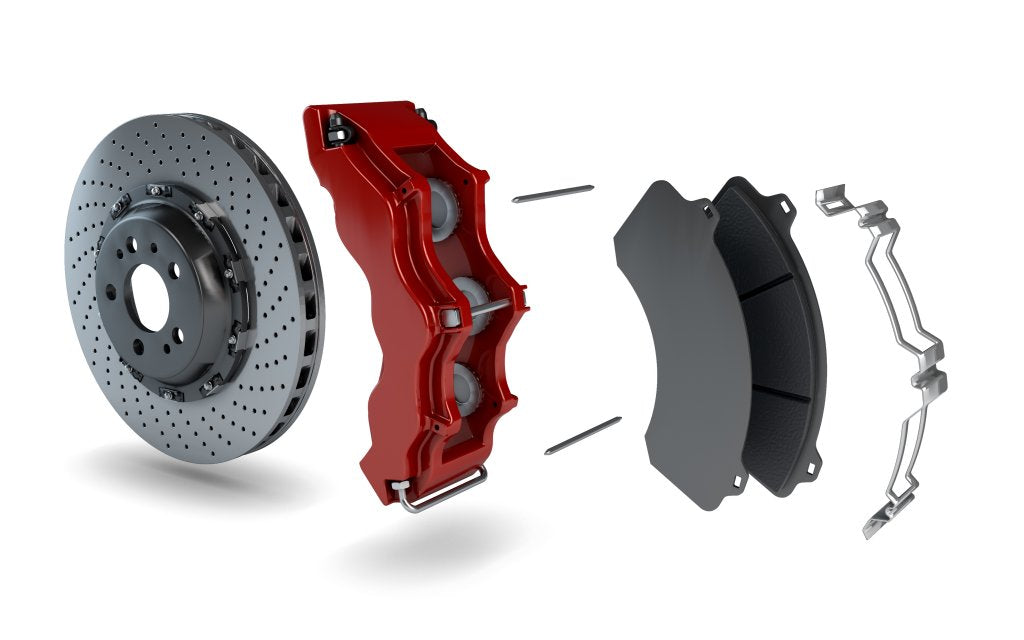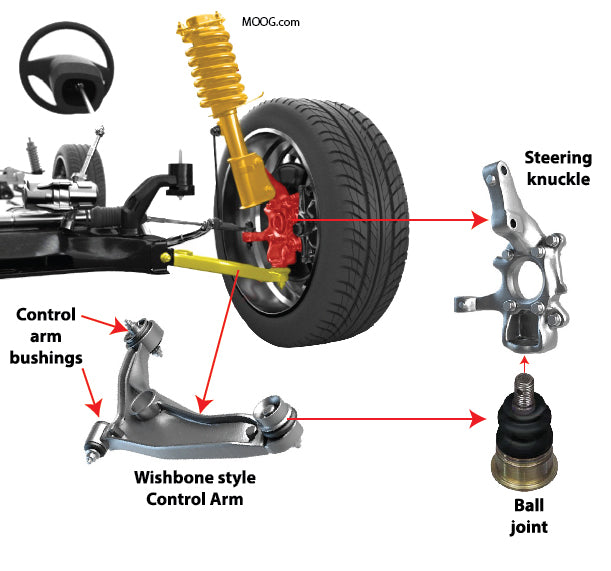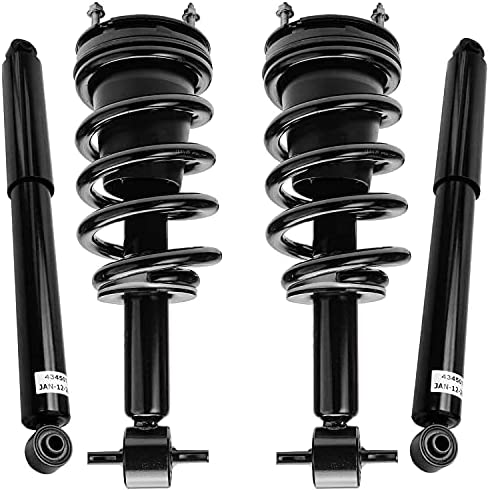What Causes Your Brakes to Squeak?
We’ve all heard that unmistakable loud squeaking noise coming from a vehicle, either our own or someone else’s, and thought “uh oh, somebody needs new brakes.”
The next time you hear that sound coming from your own car, truck, or SUV, don’t immediately panic. Squeaky brakes don’t always mean something is wrong with your vehicle. In fact, sometimes squeaky brakes don’t mean anything at all. Which is why if you hear any noises you should schedule a complimentary inspection with Spring Works today.
Here are some of the most common causes of squeaky brakes. Review them and determine whether your brakes are squeaking because of normal use or if they need to be inspected and potentially repaired or replaced by a professional at Spring Works.
Common causes of squeaky brakes
Moisture accumulation

Sometimes brakes squeak after they’ve been sitting overnight as a result of moisture that has accumulated since the last time you drove. If you’ve ever heard a squeaky sound coming from your brakes early in the morning on a rainy day only to have the sound disappear when you take it out around lunchtime, you’re experiencing the result of your brake pads sweeping off a thin film of rust that has formed on the iron discs.
Weather

Extreme cold can cause brakes to squeal especially In temperatures below freezing. It’s common for ice and snow to get into your braking system. That squeaking you’re hearing may be the sound of the ice and snow melting as your brakes heat up and could go away as you drive. You might also notice your anti-lock brake (ABS) light turning on and feel it engage if you’re driving through snow or ice. This may also go away when you get back to driving on dry roads. High quality brake pads have the ability to recover quickly from increased temperature and moisture. They respond and have almost the same friction at all points in the drying or cooling process.
Brake pad friction

The material in your brake pads that causes the friction that’s necessary for your brakes to stop when you press them could be to blame for that squeak you’re hearing. Kevlar in particular, which is used in non-asbestos organic brake pads, tends to be dusty, leading to harmless squeaking. The metallics used in other types of brake pads can also cause brake noise as you slow down. Glazed rotors can cause noise and glazing is caused from over heating the disc and/or incompatible pad/disc combination.
There’s not much you can do if the materials in your brake pads are causing a squeal, aside from switch out the type of brake pad you’re using. Make sure to use the right type of brake pads for where and how you drive. We can help you choose the best type of brake pad for your vehicle.
Worn brake pads

If you notice your brakes squeaking throughout the day, regardless of the weather, you probably have worn brake pads. This built-in sound mechanism (wear indicator) is designed to alert drivers to get their brake pads replaced before it becomes a major safety concern. You might also notice a change in how it feels when you press down on the brake. Brake pads wear out over time, so it’s important to have them inspected at regular service intervals or if you suspect yours are getting worn.
Warped rotor
If you have a warped rotor, you probably hear more of a shudder sound and feel than a squeal. You might also feel like you’re grinding to a halt when you apply the brake. This is a fixable problem, but it’s also preventable if you bring your vehicle in for an inspection when you first notice the squeal.
What to do if your brakes squeak
If your brakes only squeak when it’s raining or during the winter when it’s really cold, you may have nothing to worry about. But since a brake inspection only costs you about 30 minutes of your time it’s a good idea to bring your brakes into a repair shop to make sure there isn’t anything more serious happening. Because brakes are such an integral safety feature for your vehicle, don’t hesitate to bring your vehicle into Spring Works for a thorough brake inspection. Schedule an appointment today!



